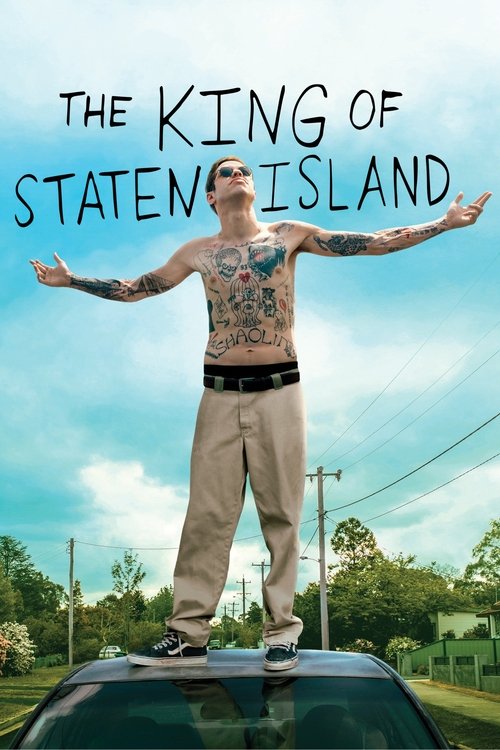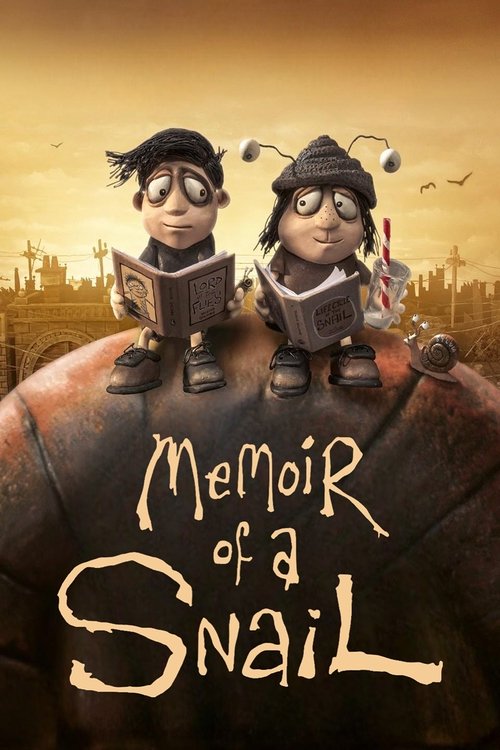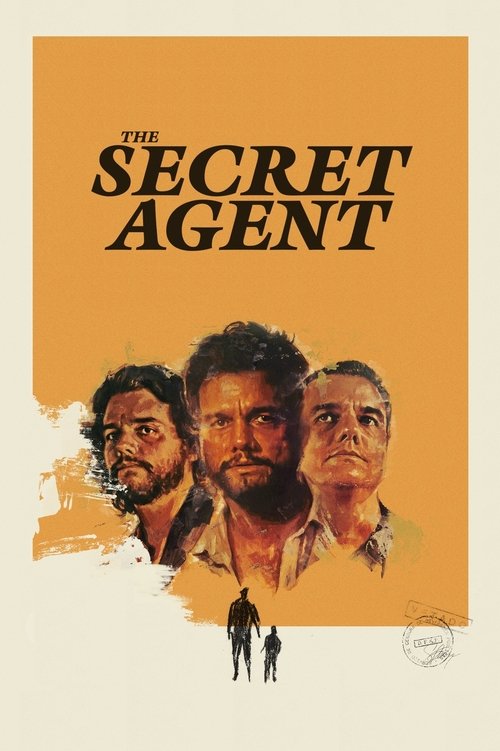
Ask Your Own Question
What is the plot?
Sorry, we aren't able to watch and write up a full detailed plot yet. Check back in a few days.
What is the ending?
At the end of "The King of Staten Island," Scott finally begins to take steps toward personal growth and independence. He reconciles with his mother, Margie, and acknowledges the need to move forward in his life. He also finds a sense of closure regarding his father's death. The film concludes with Scott preparing to leave Staten Island for a new chapter, symbolizing his journey toward maturity.
In a more detailed narrative, the ending unfolds as follows:
As the film approaches its conclusion, Scott Carlin, played by Pete Davidson, finds himself at a pivotal moment in his life. After a series of events that have forced him to confront his past and his struggles with grief, he stands at a crossroads. The emotional weight of his father's death, a firefighter who died in the line of duty, has loomed over him for years, stunting his growth and keeping him tethered to a life of stagnation.
In the final act, Scott's relationship with his mother, Margie, portrayed by Marisa Tomei, reaches a critical juncture. Margie has been supportive yet frustrated with Scott's inability to move on. In a heartfelt conversation, she expresses her desire for him to find his own path and not to rely on her for emotional support indefinitely. This moment is charged with tension, as Scott grapples with the fear of losing the only stability he has known. Margie's words resonate deeply with him, igniting a flicker of motivation to change.
Simultaneously, Scott's relationship with his friends and his romantic interest, Kelsey, played by Bel Powley, also evolves. Kelsey has been a source of encouragement, and their bond deepens as Scott begins to open up about his feelings and fears. However, he realizes that he cannot continue to lean on her or his friends as a crutch. This realization is pivotal; it marks the beginning of his journey toward self-sufficiency.
In a climactic scene, Scott attends a gathering where he confronts his father's legacy. He shares a poignant moment with his father's former colleagues, who have become a surrogate family to him. This encounter allows Scott to express his grief and anger, ultimately leading to a cathartic release. He acknowledges the impact of his father's death on his life, which has been a significant barrier to his growth. This moment of vulnerability is crucial, as it signifies Scott's acceptance of his past and his desire to move forward.
The film culminates in a scene where Scott prepares to leave Staten Island. He stands outside his childhood home, looking back at the life he has known. The weight of his father's absence is still present, but there is a newfound sense of hope in his demeanor. He has taken the first steps toward independence, symbolized by his decision to pursue a career in tattooing, a passion he has long held but never acted upon.
As the credits roll, viewers see Scott's journey toward maturity and self-acceptance. Margie, having let go of her fears for her son, watches him with a mix of pride and sadness. Kelsey, too, has played a significant role in his transformation, and while their future remains uncertain, there is a sense of mutual respect and understanding between them.
In summary, the ending of "The King of Staten Island" encapsulates Scott's journey from a place of grief and stagnation to one of acceptance and hope. Each character, from Margie to Kelsey, plays a vital role in his transformation, and the film closes on a note of possibility, suggesting that while the past shapes us, it does not have to define our future.
Is there a post-credit scene?
The King of Staten Island does not have a post-credit scene. The film concludes with a poignant moment that encapsulates the journey of the main character, Scott, played by Pete Davidson. After a series of personal struggles and growth, Scott finds a sense of closure and acceptance regarding his father's death and his own future. The film ends on a hopeful note, focusing on Scott's evolving relationships and his path toward maturity, leaving no additional scenes or content after the credits.
What is Scott's relationship with his father in The King of Staten Island?
Scott, played by Pete Davidson, has a complicated relationship with his father, who was a firefighter and died in the line of duty when Scott was seven years old. This loss deeply affects Scott's life, leading him to struggle with feelings of abandonment and a lack of direction. Throughout the film, Scott grapples with his father's legacy, often feeling overshadowed by the heroism associated with his father's profession.
How does Scott's relationship with his mother evolve throughout the film?
Scott's relationship with his mother, Margie, portrayed by Marisa Tomei, is strained at the beginning of the film. Margie is supportive but also frustrated with Scott's lack of ambition and direction. As the story progresses, their dynamic shifts; Margie begins to date a firefighter named Ray, which initially causes tension between her and Scott. However, as Scott confronts his own issues and matures, he starts to understand his mother's need for happiness and independence, leading to a more supportive and understanding relationship.
What role does the character of Ray play in Scott's life?
Ray, played by Bill Burr, is a firefighter who begins dating Scott's mother, Margie. Initially, Scott resents Ray, viewing him as an intruder in his life and a replacement for his father. However, as the film progresses, Ray becomes a father figure to Scott, offering him guidance and tough love. Their relationship evolves from animosity to mutual respect, particularly as Scott learns to appreciate Ray's perspective on life and the challenges of being a firefighter.
What are the significant events that lead to Scott's personal growth?
Scott's personal growth is catalyzed by several key events: his interactions with Ray, the challenges he faces in his relationships, and his experiences with his friends. A pivotal moment occurs when Scott decides to pursue his dream of becoming a tattoo artist, which forces him to confront his fears and insecurities. Additionally, a turning point is when he attends a family gathering and witnesses the importance of community and support, prompting him to take responsibility for his life and make positive changes.
How does Scott's relationship with his friends impact his character development?
Scott's friendships, particularly with his childhood friends, play a crucial role in his character development. Initially, they engage in aimless activities, reflecting Scott's own stagnation. However, as the film progresses, Scott's friends begin to challenge him to grow and take risks. Their support and camaraderie help Scott realize the importance of pursuing his passions and stepping out of his comfort zone, ultimately leading him to a more fulfilling path.
Is this family friendly?
"The King of Staten Island" is not considered family-friendly due to its mature themes and content. Here are some potentially objectionable or upsetting aspects that may occur:
-
Strong Language: The film contains frequent use of profanity, which may not be suitable for younger audiences.
-
Substance Use: There are scenes depicting drug use and alcohol consumption, which could be concerning for sensitive viewers.
-
Mental Health Issues: The protagonist struggles with grief, depression, and anxiety, which may be distressing for some viewers, especially those who have experienced similar issues.
-
Violence: There are moments of physical altercations and aggressive behavior that could be unsettling.
-
Sexual Content: The film includes sexual situations and discussions that may not be appropriate for children.
-
Family Dynamics: The portrayal of a dysfunctional family and the impact of loss can be emotionally heavy and may resonate deeply with some viewers.
These elements contribute to the film's rating and its overall suitability for younger audiences.



































































